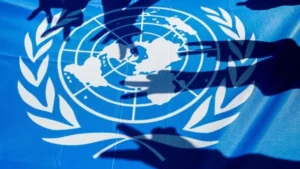
The global displacement crisis has reached alarming proportions, with millions of people forced to leave their homes due to armed conflicts, persecution and systematic policies. According to the concept paper written for an international conference sponsored by the West Azerbaijan community, “It is imperative to prioritize the voluntary, safe and dignified return of expelled people to their homes as a long-term solution.”
The Azerbaijanis were deliberately expelled and deported from the territory of present-day Armenia in 1905-1906, 1918-1920 and 1948-1953. In 1948-1953 alone, more than 150,000 Azerbaijanis were deported en masse from their historical lands in the territory of the Armenian SSR. Some of them, especially the elderly and infants, died due to severe resettlement conditions, unfavorable climate, physical deprivation and mental suffering. In the face of the disintegration of the USSR, more than 250,000 Azerbaijanis living in Armenia were forcibly expelled from their historical lands. 216 of them were mercilessly slaughtered and 1,154 were injured.
In a recent conference titled “Enabling the safe and dignified return of Azerbaijanis expelled from Armenia: Global context and just solution,” Dr. Nazim Mustafa of the Azerbaijan National Academy of Sciences noted: “In the 1800s, only a few Armenians existed there,” noting that it was the decision of the colonial powers to transform Yerevan Province into a homeland for the Armenian people by importing Armenians into the region and kicking out Azerbaijanis.
Professor Yildiz Deveci Bozkus from Ankara University underscored that Yerevan province was originally a majority Azerbaijani area and that foreign experts in the past even noted that there were scarcely any Armenians in the area. Yet, she noted that thanks to the work of colonial powers who supported the ethnic cleansing of Azerbaijanis from the region, it is now an exclusively Armenian place: “The Soviet policy led to the displacement of thousands of Azerbaijanis, with their historical and cultural heritage being destroyed in Armenia. This changed the demography of the region.”
According to the concept paper, “The case of forced expulsion of Azerbaijanis from Armenia, where they once constituted an absolute majority, represents an immense and unprecedented injustice. The plight of Azerbaijani expellees from Armenia exemplifies the grievous consequences of ethnic cleansing perpetuated by systematic state efforts, characterized by violence and gross human rights violations. These tragic events unfolded over multiple periods, notably in 1948-53 and 1987-91. The consequences of these illegal actions remain unresolved.”
Khalid Taimur Akram, the executive director of the Pakistani Research Center for a Community with a Shared Future, stated: “The forced expulsion of Azerbaijanis from their homes in the 1990’s represents a dark chapter in the history of the South Caucasus. Families of refugees had their lives shattered. The Armenian forces committed ethnic cleansing.” He emphasized that their safe return to their homes is pivotal for the establishment of peace and security in the South Caucasus.
According to the Concept of Return, which was published by the conference, “Ethnic cleansing committed against Azerbaijanis was in most carried out with the state organs through violence, genocide, massacres and other crimes against humanity and gross violations of human rights. The Soviet Union, in particular its notorious leader Joseph Stalin, who transferred Zangazur and other majority Azerbaijani areas to Armenia in 1921 and who signed a racist order on the deportation of one hundred thousand ethnic Azerbaijanis from Armenia, remained unredressed.”
They continued: “In the same vein, the actions committed by the Armenian Soviet Socialist Republic against its Azerbaijani population in 1987-1991 are still unremedied. In Armenia nowadays, Azerbaijani historical and cultural heritage including mosques and graveyards, toponyms were changed and systematic racial discrimination was carried out against Azerbaijanis. Those who participated in ethnic cleansing and other crimes against ethnic Azerbaijanis and their misdeeds are glorified at the state level in Armenia.”
It should be emphasized that the Azerbaijanis who were forced out of Armenia were peaceful citizens, who did not pose a threat to the Armenian state. They were not part of any armed groups that threatened the political goals of the Armenians. They were merely kicked out of their homes because of their faith and nationality, and for no other reason. For this reason, in the framework of a future peace agreement between Azerbaijan and Armenia, their return should not be considered a threat.
Sadly, West Azerbaijanis are not the only nation to suffer such a fate. Ambassador Gunyan Saptoma, Chairman of the International Relations Commission of the Council of the Indonesian Ulema, noted that the right of return of the refugees is engrained in international law and that there are many displaced nations in Southeast Asia as well. One poignant example he gave was the boat people of Vietnam: “The Vietnam War lasted for twenty years. After the fall of Saigon, the capital of South Vietnam, when the United States decided to withdraw its troops from South Vietnam, there were about a half of a million boat people and around 700,000 fled to the United States and its allies, such as Canada and Australia.”
However, unlike the West Azerbaijanis, the boat people of Vietnam did see light at the end of the tunnel: “More than 100,000 later were repatriated back to Vietnam for they were not accepted by the United States as real refugees. I participated in the effort to repatriate 12,000 Vietnamese back to South Vietnam. The Vietnamese government agreed to accept them in 1993.” Let us hope that in the wake of a peace agreement the West Azerbaijanis can be accepted back as well.